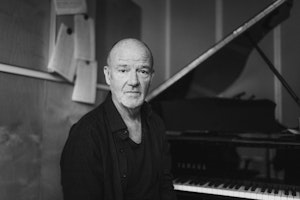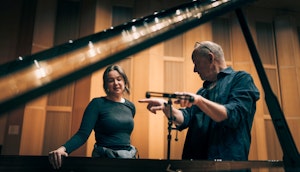For nearly 50 years, Jon Balke has enriched the world with his musical palette.
However, he cannot distinguish between red and green, something the music world can be thankful for. His dream was to become something entirely different.
– I was supposed to be a pilot, but I'm colour-blind. If you can't tell the difference between lanterns and lights meant to guide you, you're automatically excluded from the skies, Balke laughs.
Where sight posed a limitation, hearing came to his aid. Jon Balke was immersed in music from infancy, thanks to his father, who, although he worked as a lecturer, pursued music throughout his life.
– He was a versatile musician, playing the clarinet as well as the guitar, piano, and double bass. I grew up in a home filled with music, Balke explains.






